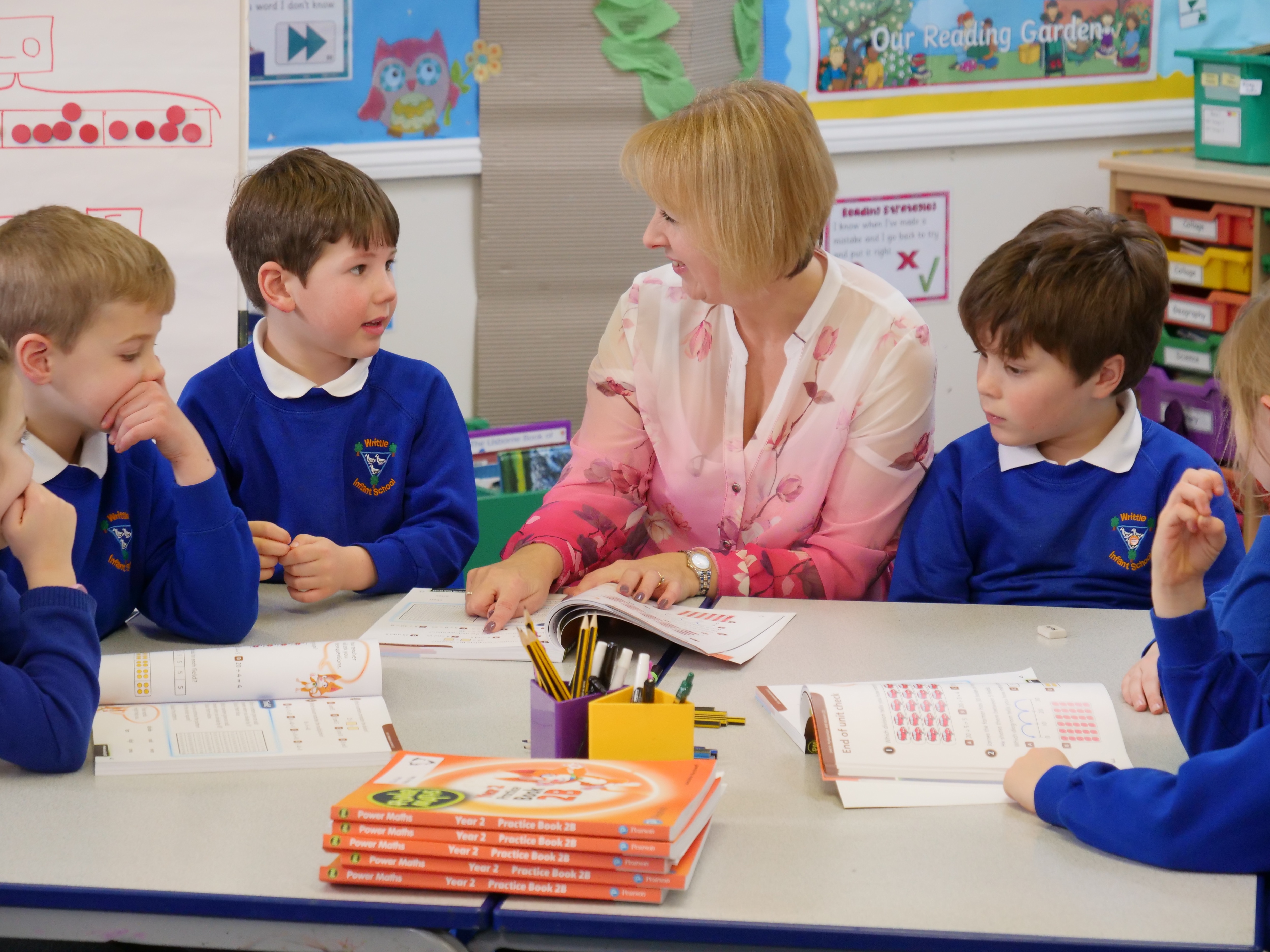Pearson’s maths mastery programme, Power Maths, is recommended by the DfE

Power Maths Key Stage 2 (KS2) has joined the KS1 resources on the Department for Education’s list of recommended textbooks, making it the most recently recommended programme to meet the criteria for high-quality mastery textbooks(1) in England.
The whole-class mastery programme, from leading education company Pearson, is created in partnership with White Rose Maths and written specifically for UK classrooms.
In 2016 the government announced that the mastery approach to maths would become a standard fixture in England’s primary schools. As part of this initiative, the Department for Education is providing up to £2,000 match funding for selected schools(2) to invest in high-quality mastery resources. Since being placed on the Department for Education’s recommended list of mastery textbooks, the Power Maths programme is now available for match-funding through the Teaching for Mastery programme.
Speaking about the latest announcement, Sharon Hague, Senior Vice President for Schools at Pearson, said: “We are delighted that the full Power Maths suite has been recommended to support teaching for mastery in maths.
“For too long now, the phrase ‘I can’t’ has pervaded maths classrooms across the country. We are committed to ensuring that every child becomes a master of maths, and the approval of our KS2 resources takes us another step closer to this. Power Maths is designed to spark a curiosity and excitement for maths learning, while instilling confidence and knowledge in both teachers and children as they embark on their journey to mastery.”
In the latest round of judging, the DfE’s expert panel found that Power Maths KS2 meets all the criteria for high quality textbooks to support a mastery approach. This included delivering the National Curriculum for Mathematics in small and logical steps, deepening a child’s understanding through visual representations and helping teachers to enhance their own subject knowledge and pedagogical practice.
All Power Maths resources follow an exciting growth mindset(3) and problem-solving approach. All children are encouraged to believe in their ability to master maths and are empowered to succeed through curiosity and persistence, while tackling the same concepts at the same time and progressing together as a whole class.
Power Maths series editor, Tony Staneff, said: “It has been a lifelong dream to be able to work on a series like Power Maths. The resources have brought ideas and research from across the globe into English classrooms to engage and inspire children whilst supporting them on their mathematics-learning journey.”
“Each carefully designed lesson provokes curiosity, encourages a positive mind set, teaches for understanding and encourages constant mathematical thinking. I’ve already seen first-hand the amazing difference the materials have made in primary schools that are using it! The result of all this hard work, in my opinion? Maths - everyone can!”
Speaking about the impact that Power Maths has had in their school, Lewis McGee, maths lead at The Priory Primary School in the West Midlands, said: “Power Maths has enabled us to provide all pupils with the appropriate pitch, scaffolding and teaching to move whole classes towards the end of year expectations. Since adopting the mastery approach and using Power Maths, we have noticed an increase in progress and attainment in KS1, where it has been used for the most considerable amount of time. Early indications in KS2, have also provided a positive picture.”
Contact
For information about purchasing Power Maths or for product specific enquiries, please email powermaths.experts@pearson.com or call 0345 478 8802.
For media enquiries relating to Power Maths or maths mastery, please contact our Communications Team at powermaths@consiliumcommunications.co.uk or call 07496 727 202 / 07467 945 848.
Useful links
References
- Teaching for mastery in maths is an approach commonly adopted by some of the leading performers in mathematics education, including Shanghai and Singapore. Pupils are taught through whole-class interactive teaching, where the focus is on all pupils working together on the same lesson content at the same time. Concepts are developed in small, logical steps with particular attention given to fundamental concepts. This ensures that all children can master concepts before moving to the next part of the curriculum sequence, allowing no pupil to be left behind. For more information, please read Pearson’s Handy Little Guide to Mastery.
- These schools are participating in the Maths Hubs primary Teaching for Mastery programme including Mastery Specialist schools and schools in Teaching for Mastery Work Groups led by Mastery Specialists.
- Growth mindset is key to teaching for mastery in maths. All children are encouraged to believe that by working hard at maths they can succeed. For more information, please read Pearson’s Handy Little Guide to Growth Mindset.